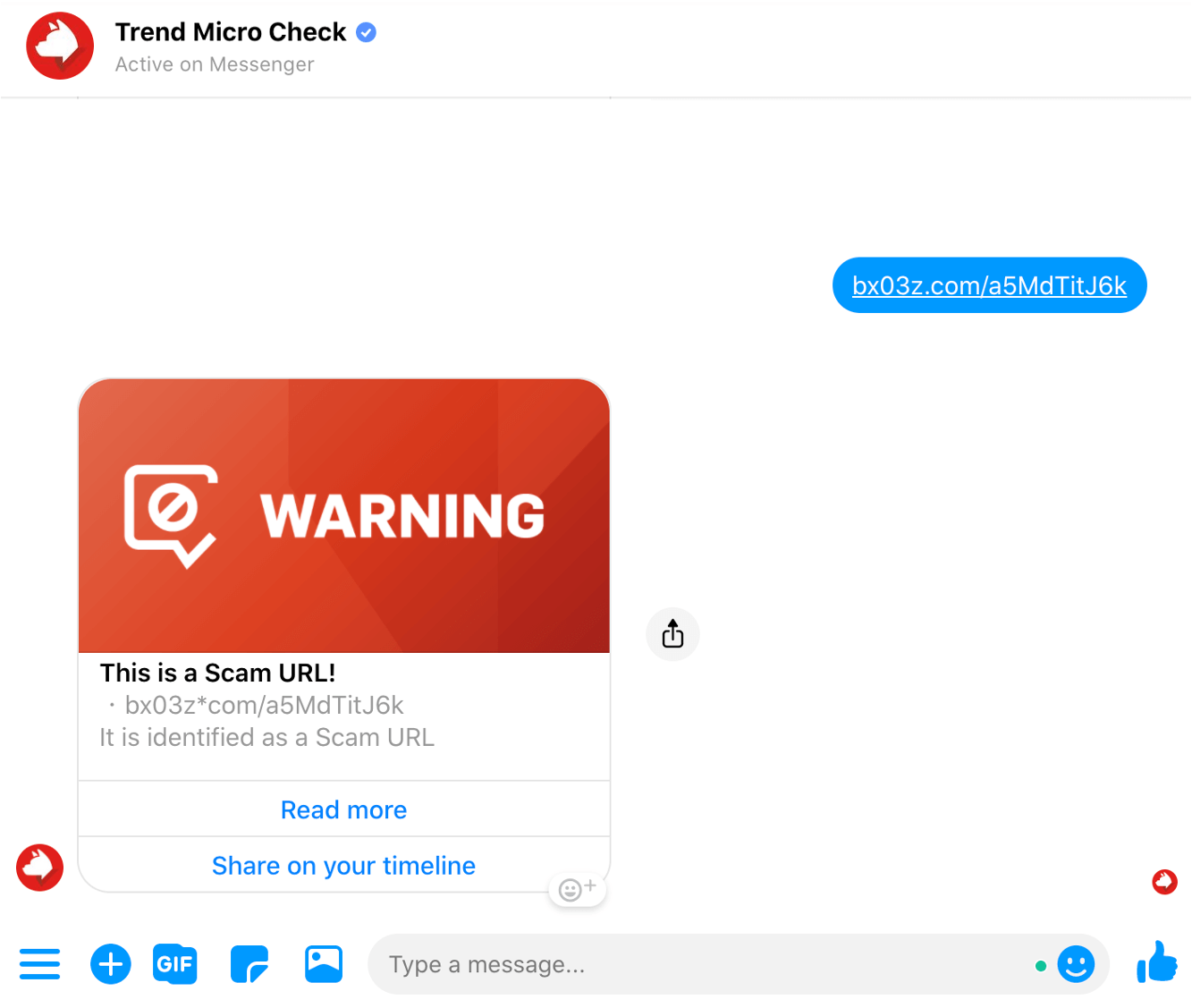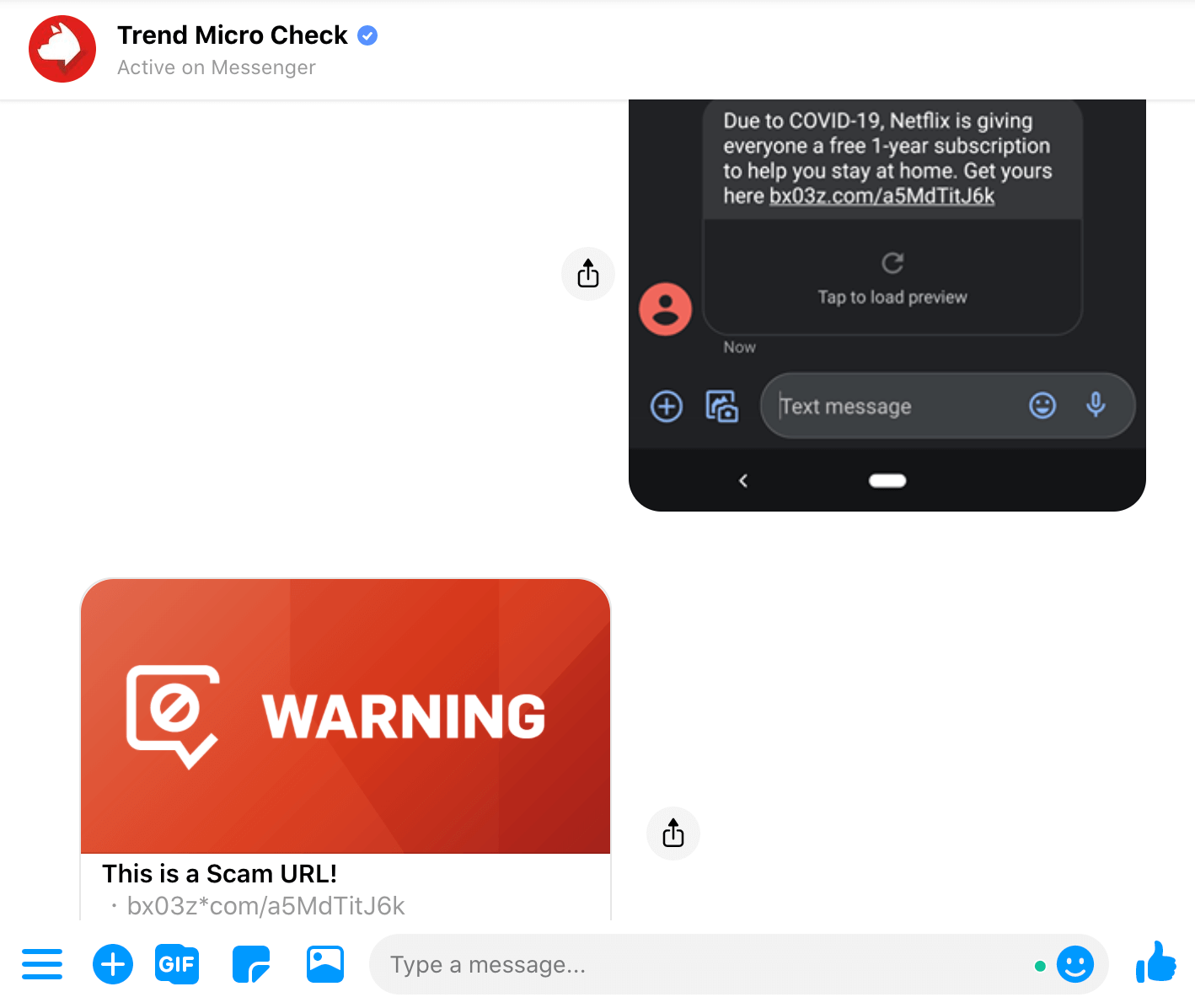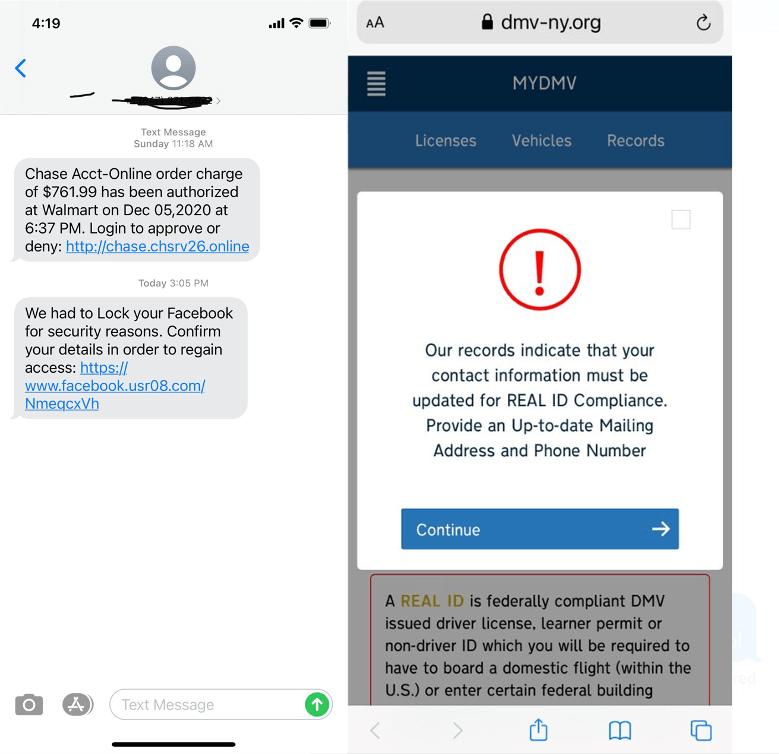It’s that time of the week again! The latest scams include free Netflix subscription phishing messages (!), fake check scams through emails, and robocall scams. Did you see anything similar in your inbox?
Netflix “free subscription” phishing scam
We’ve noticed some text messages such as this “Due to the pandemic, Netflix is giving everyone a free 1-year subscription to help you stay at home. Get yours here: (link)” were sent to many people recently. Be careful. These messages are phishing scams!

How phishing messages work
Scammers try to trick people into clicking the phishing link included in these messages, posing as Netflix and claiming to be giving away free subscriptions.
Similar methods apply in other phishing text messages. For example, scammers might ask you to track your delivery or to verify your account via the link they provide. If you click on the link, you will either accidentally share your login credentials or other personal information with the scammers, or in a worse case, unknowingly download malicious files to your device.
How to avoid phishing scams?
It is important to stay alert and check before your next move. Be aware of any too good to be true offers and unknown links sent or shared by people you don’t know. If you are unsure of content or request, you can copy/paste the link (URL) and send it to Trend Micro ScamCheck for immediate scam detection. Too lazy to copy/paste? You can send a screenshot directly to ScamCheck as well!


Fake check scams targeting college students
Fake check scams targeting college students have been recurring.
Common tactics for fake check scams
In a fake check scam, fraudsters often send you fake checks and ask you to return a part of the money by wiring or purchasing prepaid cards for them. Victims fell for fake check scams because they mistakenly thought the checks are real and gave their money away BEFORE the bank found out the check was fake.
The Federal Trade Commission (FTC) has warned that scammers are pretending to be professors and send part-time job offers (such as teaching or research assistant) to college students through student emails. After the initial outreach, scammers would send students fake checks for thousands of dollars, claiming they’ve overpaid an amount of money. With that, scammers would ask students to pay the “overpaid” part back with prepaid cards.
How to avoid fake check scams?
According to FTC, “Fake checks are used in many types of scams,” such as mystery shopping, claiming prizes, overpayments… and the list goes on.
No matter what type it is, the bottom line remains the same; NEVER give money to someone who sends you a check! Here are useful tips to protect yourself from fake check scams:
- Don’t take checks from people you don’t know, especially when they say they’ve overpaid.
- Ignore ‘prize’ offers that you have to pay for.
- Never wire money, let alone giving prepaid cards to strangers.
- Take a closer look at the check you receive, or contact your bank first to verify the authenticity of the check.
- Report to your local police, government, FTC, or the platform you encountered the scammers (e.g. Facebook marketplace) if you spot a fake check scam!
Robocall scams from fake Amazon and Apple support
Phone call scams and robocall scams
Phone call scam (sometimes referred to as robocall scam) is when scammers pretend to be well-known companies, banks, the police, celebrities, or staffs from notable organizations and call you – claiming there is a problem with your account/membership/orders…etc, and request you to take action such as paying money or change settings to your accounts.
In the latest version of robocall scams, victims have received calls in which a recorded voice pretending to be someone from Amazon says there’s something wrong with their accounts, mentioned in FTC‘s blog post. In other cases, victims have received calls from scammers claiming there’s “suspicious activity” in their Apple iCloud accounts.
How to avoid robocall/phone call scams?
As suggested by FTC, “if you’ve received an unexpected call or message about a problem with any of your accounts, hang up.
- Do Not press 1 to speak with customer support
- Do Not call a phone number they gave you
- Do Not give out your personal information
Check before your next move. You can contact the officials/organizations/companies yourself to make sure if the issue raised over the phone is true!
Did you successfully spot the scams? Remember, always CHECK before your next move.
If you think Trend Micro ScamCheck is helpful, please SHARE to protect your family and friends.
Click on the button below to try Trend Micro ScamCheck for free now:

